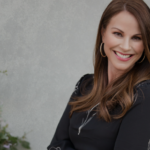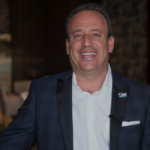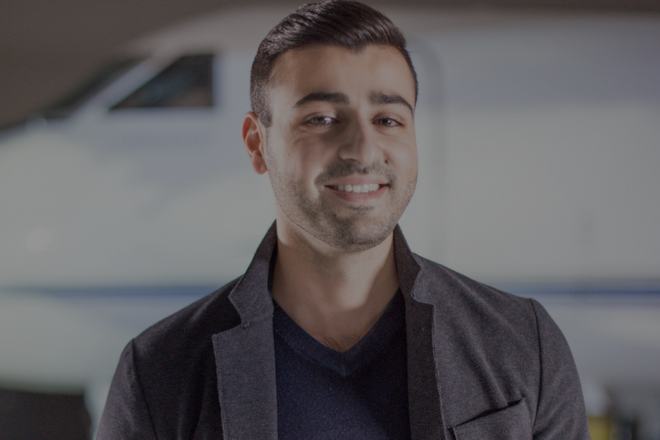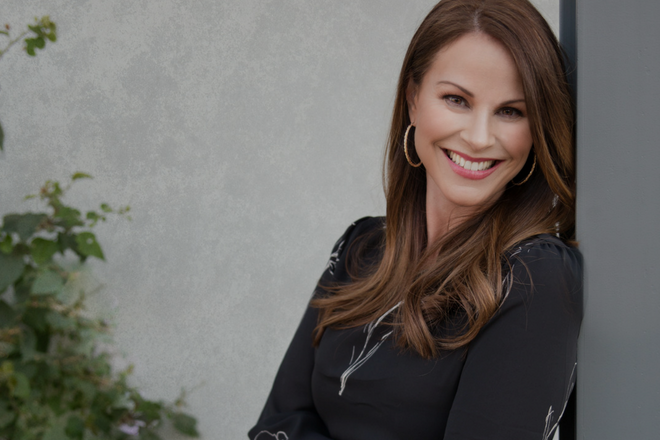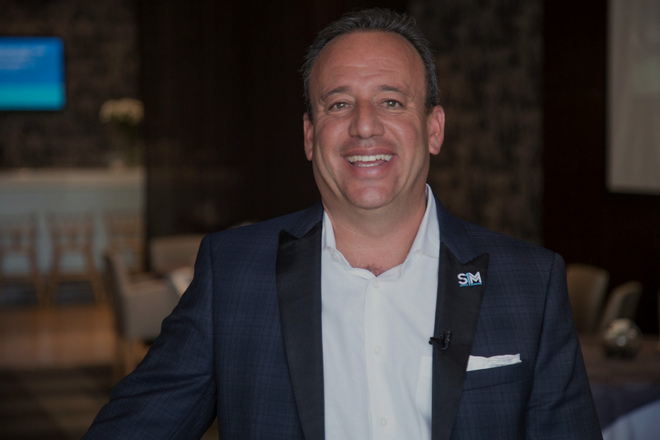“If you’re without a team, then you can’t go further. On a high level note, when you’re approaching an industry you gotta be honest with yourself. Try to see the situation for what it is, and you gotta try to identify a niche and try to make it quantitative. Really, really understand what that niche looks like from a data perspective.“
Sergey Petrossov – Founder, CEO & Chairman of JetSmarter; Disrupting the aviation industry; the sharing economy; building community; approach to competition; providing more value to your customers.
Segment 1: (Length :04:00) – General Updates; Introduction to Sergey Petrossov and his journey as an entrepreneur; Seeing a need in the private aviation space; market trends and the sharing economy.
Sergey’s finer points:
I thought maybe it was a niche industry, when I looked into it back in '09. I actually noticed how large the industry was from a supply standpoint, but it was only serving a small group of people.
“I was involved in another tech company back in ’09 and I got exposed to sort of the process in ’09 and I met a private jet company, that wanted some help basing some air planes in Eastern Europe.”
“I was traveling between Florida and there, I obviously really associated with this space. I started to sort of look into the business, and I quickly found out that the only way they actually operate was, literally 1980’s like the stock market was. Fax machines, excel spreadsheets, no sophisticated revenue management, no yield management, that really had changed hotels, and airlines back in the early 2000’s.”
“There’s about 22 thousand private flights every single day in the United States, and there’s actually only 23 thousand commercial flights. It’s almost the same, but the thing about the 22 thousand private flights, 1/3 of them are completely empty, there’s not a single passenger on them.”
The average load factor is around 25%, meaning only 25% of the seats are actually filled of the flights that actually have passengers on them. The average planes only flying about 200 hours a year. By some metrics the industry was valued about $40 billion. If all optimally run it could get 7, 8 times bigger.
“I looked at this, and I just thought, holy crap. It’s a massive industry, it’s the only industry in the world, it’s the only travel industry in the world that really hasn’t gone digital and it was being run extremely inefficiently because it was targeting a small group of people.”
“The genuine concept started from, if you can organize this idle time of airplane, and fly them between point A, and Point B very efficiently and then break it up by the seat, you could lower the cost very significantly and you can broaden the market.”
“That was the fundamental idea, and I was just so intrigued, so I got involved as an advisor with one of these companies. It was really just a hobby between ’09 and ’12.”
“I had built a lot of relationships over those years in the private jet space. I figured well, why not. Let’s start building a mobile marketplace. We didn’t know where it was going to go at the time.”
“We had a Beta version we gave out to friends and family. We realized we were really onto something, and by early 2013 we realized to create a full fledged business out of it.”
Today we're proud to say that in the jet sharing economy, when you look at jets by the seat. In the United States we represent about 96% market share. Meaning we made this market.
“This year alone we’re going to move about 35 thousand unique passengers, and 60% of our members are new to private aviation. We’ve proved that we’ve democratized the space, and we’re only scratching the surface.”
“To our benefit, the airport experience just really sucks. People just don’t want to go there. They want to go into a new elegant way of living. Remove that stress, save the time.”
“Then when they get into it, they realize, you know what, I’m meeting some really cool people in the process. It’s a phenomenon we call social aviation. It’s almost country club in the sky.”
Segment 2: (Length :08:00) – Talking with Sergey Petrossov; Positioned as a community; Restructuring a broken system; Growing membership;
Sergey’s finer points:
“. The way that we look at our business is really like a social network and right now we connect people to cities through aviation.”
“Tomorrow, we want to influence what they do in those cities, and help those members get together when they’re not flying. It’s really a unique community.”
I speak to a lot of members and they say the people I'm meeting are worth more than the flight. I would have just joined just because of that. It really goes to the core of what we are.
“We like to say, and it sort of goes to the tune of the show, we like to say that we’re a company made by disrupters, for disrupters.”
“You think of who’s enrolling in our program. These are entrepreneurs, these are business owners. These are people that are moving and shaking, and that value their time, and that have the means to change their lifestyle, and they do, and they meet other people that are doing the same thing. Which is what’s so cool about it.”
“The Uber comparisons are really because of a mobile distribution. The logistics behind it are highly different when you talk about the air transportation, and the end product in comparison to a car service.”
“The product offering simply is, first of all you’ve got to join our club, we’re a community. We’re not necessarily a commodity for just a transportation service. We’re a community, so you have to join our community, and that costs $15,000. $15,000 for the first year, and then $10,000 a year thereafter.”
It's like a virtuous cycle, the more members the more creation. The community helps itself.
“When you join our community, you can do 2 things. You can either find an existing flight that’s going, and you can hop on seats, and that’s included in your membership. If there’s a flight going to New York, a flight going to L.A., that’s included in your membership and you hop on and you go. You’re getting value immense value out of the gate. These products don’t really exist.”
“If you need to create a flight on your own time, you can do that. Meaning you can choose to fly at 9am because there’s no flight available going to that city you need to. You can create a flight, either by the seat, or booking a whole aircraft. It’s really broke up into that.”
“You join, and then you can either find a flight or you can create your own. When you create your own by the seat, the balance of those seats go back to the community.”
our membership has grown almost 400% compared to the last 12 month period. We're approaching right around 5 thousand members, and then all those members bring friends and family, on certain flights, and that's where you get to that 35 thousand unique passengers this year.
“When you talk about the amount of passengers that we’re going to move in 2016, and compare it to 2015, it’s 10 times the amount. We’re growing at unreal amounts, but as many technology companies are. The reason for that is we’re at that light. Meaning, we do not own airplanes, we do not hire the pilots, all that infrastructure is already there, and they’re sitting doing nothing collecting dust.”
“We go and we start to operate these airplanes and for us, we can just tune on and turn on the service. Our app has been downloaded over a million times, there are about 450 thousand registered users.”
“These are people that registered in the platform, they’re verified in the platform, they’re just waiting for their city to light up. For new routes to light up. There are people that are waiting already in the platform that haven’t enrolled into the membership they can view the app check it out but you can’t actually fly until you become a member.”
“A lot of people are already there, and for us growth is really a factor of how much supply we put out into the market.”
Segment 3: (Length :10:00) – Disrupting an industry not ready for change; Delivering on a customer need; Entrepreneurship and having the right approach; Having good people around you.
Sergey’s finer points:
“Incumbents in the industry? Yeah, they’ve not been nice at all.”
“There’s a lot of people that, don’t really like change. Particularly this industry is driven by brokers. When you talk about consumer facing. We’ve had things like our competitors trying to pay off pilots to not show up, to arrive late, to one time they even flew a passenger to a wrong location.”
“Then we’ve had competitors buy our membership and get on our flight and try to solicit customers so we were going off against a very comfortable incumbent market, that didn’t want change.”
Today where we have size and influence, where these sorts of things don't happen anymore, but it wasn't easy and even the operator community. The operators are the ones that operate the planes who are financially benefiting from us so significantly, but initially it was just very different.
“They’re not used to jet sharing. This industry is sold by the airplane. Meaning there was no real concept of jet sharing. You have to charter a whole airplane and there’s no real opportunity to book it by the seat.”
“Then there’s no scheduled flights. When we buy, we buy up the whole plane. We lease time on it, and then we break it up by the seat. We’re the market maker in that sense.”
“Even early on, a lot of companies were very reluctant to it and they were afraid of it. Even though we would present an opportunity that’s very financially lucrative. Slowly there were early adopters on the supply side though. Then eventually, you get to a point where everybody wants to be in it, because everyone wants a piece of the pie.”
There were a lot of hurdles, a lot of relationships that were needed to be built, but because we've been first mover, we've been able to create so much value and take so much market share.
“At the end of the day, the power is with the passenger, people want a service. There’s clearly a deficiency, and we’ve been able to deliver on that.”
[On Entrepreneurship] “Firstly, you have to be honest with yourself. Sometimes people see what they want to see, as opposed to what’s actually going on. When you talk about analyzing markets, you have to be quantitative about it, and you have to really understand what’s going on. Dig deep, do real due diligence into where there is a niche, and if you find a niche then you have to try it.”
I always look at the team. Meaning, you have to understand your own deficiencies, and you have to be honest with yourself, and if you understand your own deficiencies you'll know which kind of people you'll need to bring along with you on the ride.
“You have to be really good at that, and whether you need to bring someone along to help you fund raise, you need to bring someone along to help you with technology, you need to bring someone along to help you with operations, I think that’s the most important thing.”
“If you’re without a team, then you can’t go further. On a high level note, when you’re approaching an industry you gotta be honest with yourself. Try to see the situation for what it is, and you gotta try to identify a niche and try to make it quantitative. Really, really understand what that niche looks like from a data perspective.”
“You have to have a founding team. I had very good CTO, I had a very good sales and operations person. I had a very good sort of supplier logistics person, and then I also got a partner that was going to help me fund raise.”
These are all certain, this is out of the gate. If you don't have this team, you have to understand what you need to focus on and you're getting people that are very qualified to do it. You bring them on as co-founders, they take sweat equity and you start to deliver.
“Then you need a certain amount of capital to prove your concept, you can prove your concept and it’s good. Usually there’s capital there. If it’s not good, then you’re not going to find it.”
“It all comes down to the resourcefulness of the entrepreneurs in the team. Difficult finding resources is often times a lack of resourcefulness by the team. If you really do have something good, there’s a price for everything.”
Segment 4: (Length :04:00) – Strategies for dominating this space; Views on competition; Current popular flights; Logistics and providing more value to the customers.
Sergey’s Finer Points:
“There’s a lot of incumbent competitors, meaning incumbents, there’s a lot of brokers, and they focus on a whole aircraft charter. Meaning you have to charter a whole plane, you can go from point A to point B. While we do offer that service of course, we offer it through digital means and it’s end to end.”
Our main disruptive product is jet sharing. Meaning the concept of where you book by the seat.
“There are certain niche competitors in local markets but when you have 96% market share, there’s not really much competition. We would welcome there to be competitors in local markets, for instance where we’re not.”
“No matter how much market share you have, no matter how successful you are, if you want to continue to innovate and move forward, which is really the answer to your question.”
You have to have the mindset, as if you're stomachs not full, but it's empty. You always gotta hustle. You have to hustle hard, you have to work as if, you do have tons of competitors and you're the underdog. That way you'll continuously innovate even if you're not.
“If you really are the dominate player. We welcome competition, we took on an incumbent industry. We were able to go to really push through and create an amazing product. If there are more competitors it keeps us on our toes.”
“The New York to South Florida, that by far is a dominant route. It’ll always be the dominant route. Right now we fly that, for our jet sharing product, we fly that about 16 round trips a week.”
“We think that, that market can scale to as much as 200 flights a week, 200 round trips a week. There’s a lot of movement in that corridor, sort of, there’s nothing that’s that close to it. The next biggest one would be New York to L.A., which is pretty big. We fly L.A. to San Francisco a decent amount, and then we obviously fly in Europe, and to the Middle East as well.”
We're gathering and collecting data on about 3,200 airplanes around the world. Which you can book in our jet sharing platform. There's probably 750 to 800, so not all those planes are on our sharing platform, but almost 800 planes are actually participating in the jet sharing platform.
“You always got to be thinking about innovation. You have to be thinking about not what the customers doing today, but what the customer can be doing tomorrow and get a lot more value. If you’re focusing on that and your focusing on how can I provide more value to the customer, you’ll actively look for new solutions and new ways to provide more value.”
“If you tie that disruption to new value, you’ll always be ahead. Not always, but you have to be able to take risks too. You’re not always going to get it right but if you have that in mind, you have an innovative culture, being bred you’ll always be developing new things and giving more value.”
“We’re doing that today, we’re consistently trying to provide and lower the costs and try to roll out new routes, and increase the opportunity for consumers in various markets to get into this space.”
Segment 5: (Length :03:00) – Hustler Thought of the Day:
The only way to take industry further is to not do what everyone else in the industry is doing. - Matt Gottesman
GENERAL NOTES:
Sergey Petrossov – Founder, CEO & Chariman of JetSmarter
- Born in Moscow, Russia, but lived most of his life in South Florida.
- Awarded Forbes 30 Under 30 in Consumer Technology and South Florida’s Top Working Professional by the Sun Sentinel, Sergey is always seeking out ways to innovate industries.
- He co-founded two IT projects prior to JetSmarter: an online chat system for website customer service and a distance-learning platform for Russian speaking educational institutions.
- He served as a board advisor to a private jet operator based in South Florida who at the time had the worlds largest on-demand Gulfstream charter fleet. Has traveled privately for business and leisure with friends and family prior to JetSmarter, and really hated the brick and mortar approach to booking charter.
- Frustrated with this experience, he began to notice mobile marketplaces were becoming popular, and decided this is the way private aircraft should be booked. And the idea for JetSmarter was born.
- So Sergey got his development team together from previous projects, invested his own capital and started planning the creation of an app for people to use to order flights with top rated private jet operators.
- They built the first beta-version of the JetSmarter App in August 2012, which was used by a closed group of people. Once he realized they were on to something, he decided to turn this into a full-fledged business.
- After raising more money and collaborated with hundreds of vendors and partners, the JetSmarter App was officially born in March 2013, making Sergey the Founder and CEO of one of the world’s most innovative technologies to date.
- Check him out at http://jetsmarter.com | JetSmarter Instagram | Twitter | Facebook
###
